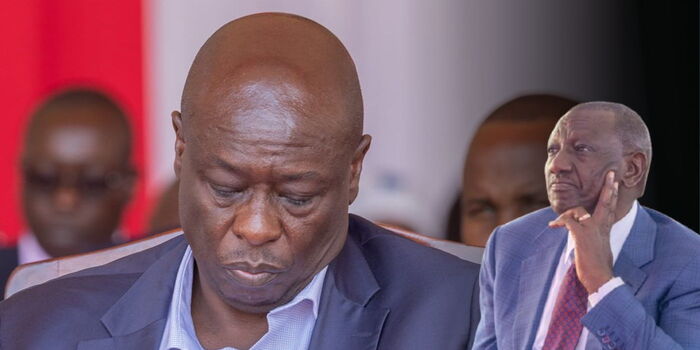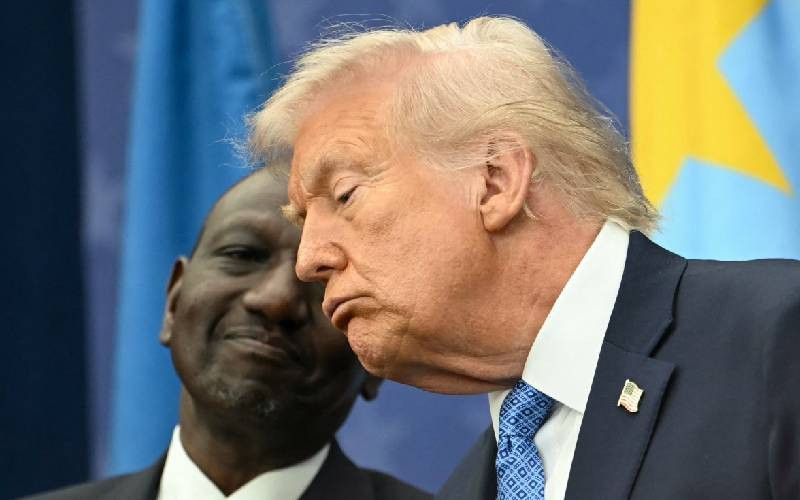Former Deputy President Rigathi Gachagua has weighed in on the debate surrounding President William Ruto’s response to AI-generated images depicting him in a coffin.
Speaking at a gathering in AIPCA Dandora, Gachagua urged the President to adopt a calmer approach to criticism and avoid overreacting to such portrayals. He dismissed the images as harmless, arguing that young people sharing them online should not face severe consequences like abduction or violence.
“There’s no justification for harming children just because they posted a picture of you in a coffin. God determines everyone’s destiny when the time comes,” Gachagua said.
He continued, “Let’s not punish our children for engaging in playful behavior on their phones. These are mere caricatures.”
Criticism of Leadership and Values

Gachagua also criticized President Ruto for lacking moral authority to address the nation’s declining values. He accused the President of tolerating abusive rhetoric from his allies, who frequently attack critics in public forums without accountability.
The former Deputy President specifically called out MP Farah Maalim for making derogatory remarks against citizens advocating for Ruto’s resignation.
“Which is worse—being depicted in a coffin or the demeaning insults from leaders like Maalim? Aren’t the verbal attacks more harmful?” Gachagua questioned.
He further dismissed Ruto’s apparent fear of death, saying, “Why the fuss about coffin images? Everyone will face death one day. Being placed in a coffin doesn’t mean you’re dead—it’s just part of life.”
Reflection on Past Actions
Gachagua reminded Ruto of his own controversial past statements, accusing him of setting a precedent for divisive rhetoric.
“This culture of insults didn’t start today; it began with you,” Gachagua pointed out, referencing past remarks Ruto made about former leaders. “You called Uhuru Kenyatta a drunkard and Raila Odinga a witch. Now you’re upset about receiving similar treatment?”
He concluded by urging Ruto and his allies to reflect on the standards they had set, suggesting they should not complain about criticism when they had been responsible for normalizing inflammatory discourse.













Leave a Reply